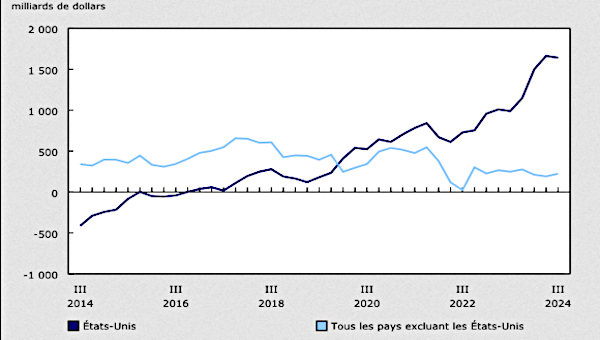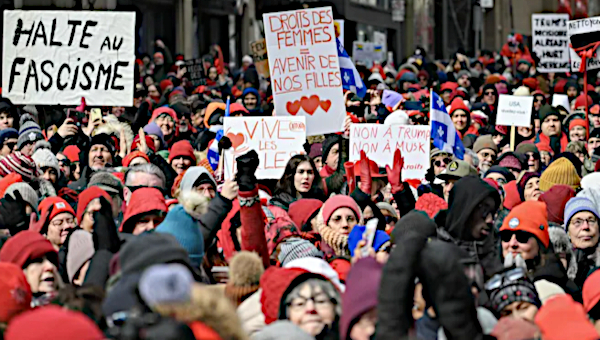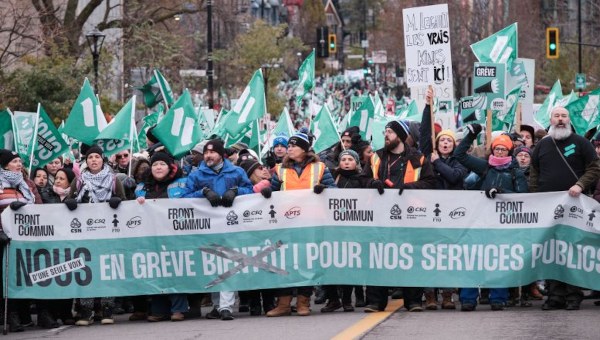The 2008 Canadian Federal Election: A Quebec Perspective
Traditionally, federal elections in Quebec have always been a privileged time to reflect and debate on Quebec’s constitutional status within Canada. Is Quebec getting more autonomous? Is Canadian federalism becoming more flexible? Are we heading towards decentralisation or centralisation? What about the sovereignty project? Are we getting closer or further away from the ‘winning conditions,’ to use Lucien Bouchard’s now dated expression? But this time, things are different. The Parti Québécois (PQ), under Pauline Marois’ leadership, has put the sovereignty question on hold for an indefinite period of time. Or, to put it in her own words, until ‘Québécoises and Québécois are ready to talk about it.’ Until then, the PQ is not interested in talking about the ‘how’ and ‘when’ of the sovereignty project. So, obviously, for once, the Bloc Québécois (BQ) has to find something else to justify its 18 year presence on the federal scene. Predictably, the other parties, especially the Conservative Party, are repeatedly questioning the relevance of the Bloc Québécois in federal politics, arguing that the BQ’s members of Parliament have been a cost without any return for Quebecers.
Unsurprisingly, the BQ electoral slogan, ‘Présent! pour le Québec,’ aims to emphasize that the BQ is here (in Ottawa) to defend Quebec’s essential interests. But what do these interests amount to in 2008? According to the BQ’s electoral platform, they can be announced as follows:
- the future of the Quebec nation;
- Quebec’s culture;
- Quebec’s economy;
- the environment and the reduction of dependency to petroleum;
- support for families, seniors, women, and youth;
- justice.
The future of the Quebec nation, even though it is the first element of the platform, has been, to all intent and purpose, completely absent from the campaign. The second element, Quebec’s culture, has temporarily become a prominent issue, due to the Conservative government’s $45-million spending cut in the cultural sector. Since a $45-million cut can hardly be considered significant when total expenses exceed $220-billion, rigorous financial management has obviously nothing to do with this political decision. Quebec’s cultural sector has spontaneously mobilized itself to denounce this ideological stance of the Conservative government, putting to good use its artistic creativity, as illustrated in a much seen, and talked about, humorous video put on YouTube by its creators, on what might constitute a new Conservative program to support the arts. But, the American financial crisis having worldwide repercussion, economic issues have once again been put the forefront of the federal campaign in Quebec.
During the leaders’ debates (both French and in English), the Conservative government chose a laissez-faire attitude to deal with the financial crisis, and its expected consequences for the Canadian economy. If that may appear sufficient to some Quebecers, most of them considered that (lack of) strategy as unacceptable, especially in light of the Republican American federal government’s $700-billion tentative solution. How can there be such a discrepancy between the responses of an (American) republican federal government and a (Canadian) federal conservative government? Could Harper be even more conservative than Bush? Could the Canadian Conservative party be even more State averse than the American Republican party? Pressured by the last opinion polls suggesting a rise in the support towards the Liberal party in Ontario, and towards the BQ in Quebec, the Conservative government finally made public, through the Minister of Finance Jim Flaherty, its own plan to help Canadians cope with the financial crisis, which is for the most part based on a $25-billion government buy-out of mortgages from Canadian banks. But being announced just 5 days before the general election, and 2 days before a long weekend, the Conservative plan appears to be aimed more at stopping electoral losses, than helping Canadians and Quebecers to deal with significant loses in their savings, and in many cases, their retirement funds, as well as additional difficulties to access capital at a reasonable cost.
Unsurprisingly, the latest opinion polls in Quebec suggest a strong lead for the BQ, which should elect something in the range of 50 of its candidates out of the 75 federal ridings in Quebec. According to a Segma-La Presse opinion poll published on October 10, support for the BQ is at 42%, whereas it fell to 20% for the Conservatives, 18% for the Liberals, 13% for the New Democratic Party (NDP), and 6% for the Green Party. In other words, Stephen Harper and the conservatives appear to have lost their pari québécois (Québécois gamble). Near the end of the campaign, reasonable expectations for the Conservative would mean that they could barely keep the 10 seats they won the last time in Quebec, mostly in the Québec city and Beauce regions. As was the case during the last federal election, the Liberal Party of Canada, the NDP, and the Green Party are essentially non-players. Both the BQ and the Conservative campaigns, which for the most part totally ignore these three parties, are concerned primarily with attacking each other.
Paradoxically, the Conservatives’ strategy in Quebec to not only question the relevance of the BQ in Ottawa, but to straightforwardly suggest that a vote for the BQ is a wasted vote (a cost without any return), appears to have backfired. The BQ has risen to the challenge and explained, better than ever before, that in a democracy, a vote is never wasted. Gilles Duceppe, very effectively, has emphasized that in our system of government, the contribution of Parliamentarians can not be reduced to the executive branch, i.e. the members of government, but that it has to do first and foremost with their work in Parliamentary committees. Duceppe mentioned time and again the decisive influence of the BQ in the legislative process, most notably in the field of social policy. Interestingly, even though this line of argument is just as valid for the NDP and the Green Party, since neither of them can expect to form the next federal government, neither of them has succeeded in becoming a serious contender in Quebec politics, even on a regional basis. This shouldn’t come as a surprise in the case of the Green party, but it has come to be a disappointment for the NDP. To date, the NDP has but one Quebec MP who is in fact a former provincial Liberal cabinet minister.
For the time being, it appears that left-of-center Québécois remain critical of the NDP’s centralist vision of Canada and are consequently hesitant to support it in large numbers. As long as this remains the case, the BQ will have a significant advantage when it comes to leftist federal politics in Quebec. Even though it was far from their intentions, the group of former BQ members of Parliament and candidates that publicly accused the BQ of being a mere lobby group of Quebec unions, may very well have helped the BQ to secure the vote of left-of center Québécois, much to the chagrin of the NDP, whose leader Jack Layton, himself originally from Montréal, spent much campaign time and effort in Quebec. Even though constitutional politics has been put on the back burner this time around, it becomes evident that the nature of Canadian federalism will remain, for the time being, at least a ‘creeping’ issue in Quebec, and that this ‘creeping’ issue will impact the election results next Tuesday, October 14. For better of for worse, it seems that federal politics in Quebec will never rid themselves of constitutional issues, preferences, and indeed, paradoxes. •





